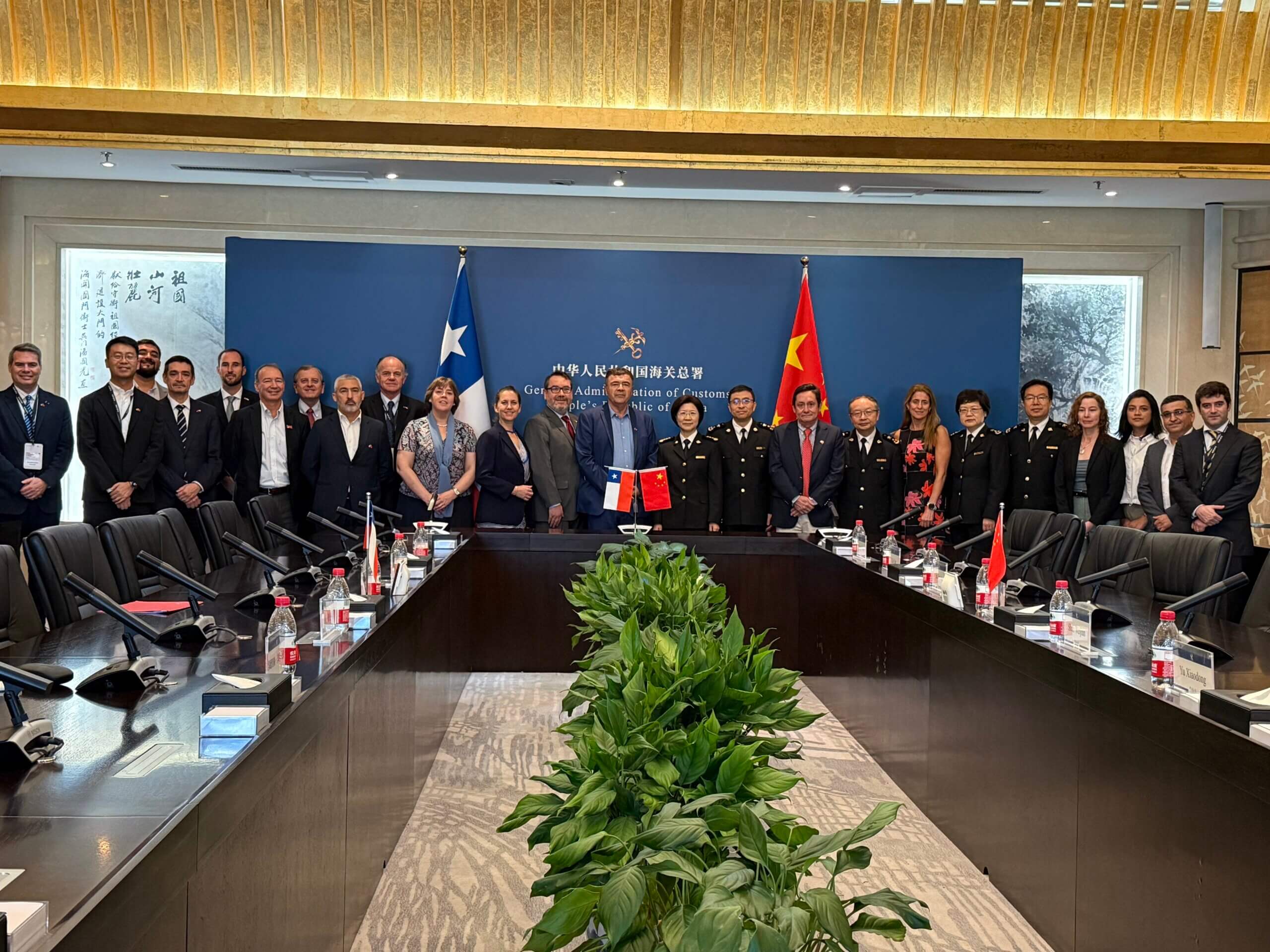New bilateral agreements between Chile and China opens opportunities for agricultural exports
Photo: Ministerio de Agricultura de Chile.
According to an official statement from the Chilean government, within the framework of the “China-CELAC Forum,” the country led by President Gabriel Boric signed three agreements to boost the agricultural exports of the South American nation.
These agreements were signed by Esteban Valenzuela, Chile’s Minister of Agriculture, and specifically concern the export of untreated bovine leather, wool, and other hides, as well as the expansion of the poultry protocol already in place between the two nations.
According to Chile’s Secretary of State, these new agreements contribute to the country’s development within the international framework of foreign trade, positioning the nation as a reliable supplier with high sanitary standards.
For his part, Minister Valenzuela stated that “the signing of these new protocols is a milestone for bilateral sanitary cooperation and allows us to increase the diversity of products we export from Chile to China. These openings not only open markets but also promote territorial inclusion and rural development.”
Regarding the expansion of the poultry protocol already in place between the two countries, the new agreement will allow for the inclusion of thermally treated meat products as well as frozen poultry by-products. This will help develop and strengthen poultry exports. The agreement was signed after Chile was declared free of Highly Pathogenic Avian Influenza (HPAI) at the end of last year.
This expanded poultry protocol is expected to benefit some of the main regions in the country with a strong poultry industry, such as Ñuble, Maule, Metropolitana, and O’Higgins. It will lead to job creation and sector diversification, bringing dynamism to investments and exports.
It is important to highlight that, when comparing the first four months of 2022 with the same period in 2025, data show that exports are beginning to stabilize and recover. With the signing of the expanded protocol, exports are expected to gain further momentum, offering a broader product range with supply guarantees and efficient logistics.
Regarding the leather and wool protocols, the agreement sets out minimum sanitary, quarantine, and logistical requirements for the purchase of Chilean raw wool by the People’s Republic of China.
In 2024, Chilean wool exports totaled 11 million dollars, with 5.7 thousand tons shipped to various countries through foreign trade.
The main importer of Chilean wool during that period was the People’s Republic of China, acquiring 82% of the total volume exported. Likewise, so far in 2025, the Asian country has imported 1,793 tons of this product, valued at 2.9 million dollars.
Additionally, the signing of these protocols also establishes minimum sanitary and quarantine requirements for the export process from Chile to the People’s Republic of China.
Thus, the agreement outlines obligations to be met, such as the origin of animals from officially recognized Chilean farms, the need for zoosanitary certificates in English, compliance with hygiene standards, and appropriate logistics to ensure animal welfare at processing plants.
In 2024, the People’s Republic of China imported 74.3% of the volume of the 17,000 tons of hides and leather that Chile exported and also accounted for 58.5% of the total value of the 22.7 million dollars generated by these products.
In this regard, the Secretary of State emphasized that “the signing of these agreements represents a strategic milestone for Chile’s livestock sector, as it formalizes the export of these products to the Chinese market. They open up new commercial opportunities in one of the world’s largest markets, adding value to a by-product of national livestock.”
As a result of these two protocols, certain regions will benefit due to their strong presence in the export sector for these products. These include the Magallanes and Chilean Antarctic region, which is the main wool-producing area in the country.
Last but not least, the Minister of Agriculture highlighted that, in the case of Chile’s Antarctic region, “its geographic isolation and extensive production system make it particularly suitable for meeting the sanitary and traceability standards required by China. The Aysén region also plays an important role in sheep farming, with natural conditions that favor animal health,” thereby contributing to the dynamism of this sector.
Main Source:
Chile y China firman nuevos acuerdos para ampliar exportaciones agropecuarias – Ministerio de Agricultura de Bolivia
Related News:
Chilean President Boric will meet with Xi Jinping and lead a business meeting in China
Chinese companies Tsingshan and BYD withdraw from lithium projects in Chile
Representatives from Chile and China met to discuss renewable energy
You may be interested in:
3 anuncios de Xi Jinping sobre América Latina durante la visita a China de Boric, Petro y Lula – BBC Mundo

